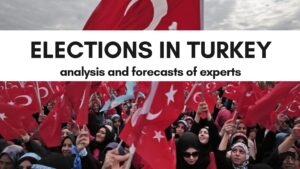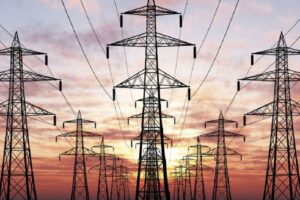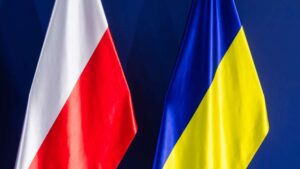
On May 12, the State Aviation Enterprise (SAE) “Ukraine” again announced a tender for services of compulsory civil aviation insurance: compulsory liability insurance of commercial aviation civil aircraft operator for damage caused to third parties and air carrier liability for damage caused to passengers and baggage; compulsory civil aircraft insurance; compulsory insurance of aircrew members and other aviation personal
According to a message in the electronic procurement system Prozorro, the expected value of the purchase of insurance services is UAH 23.392 million.
The tender bid is secured by an electronic bank guarantee of UAH 233.9 thousand.
The deadline for bids is May 20.
As reported, a similar tender with the same budget was announced on April 28, after a tender with a budget of UAH 17.1 million, announced on March 9, failed due to lack of proposals.
The State Aviation Enterprise “Ukraine” was established to organize, provide and perform air transportation, special flights of the highest official delegations of Ukraine and other states in the country and abroad in compliance with the requirements and rules, which are stipulated in the relevant regulatory documents.
BUDGET, INSURANCE, State Aviation Enterprise, TENDER, UKRAINE
Brazil has approved the candidacy of Ukrainian Deputy Foreign Minister Andriy Melnyk for the post of Ambassador Extraordinary and Plenipotentiary of Ukraine.
“The Brazilian government is pleased to announce that it has granted Mr. Andriy Melnyk an aggregate nomination for the post of Ambassador Extraordinary and Plenipotentiary of Ukraine to Brazil,” the ministry said in a statement on its website.
Earlier on May 10, Melnyk had a meeting in Kiev with Celso Amorim, chief advisor of the Special Consultative Service of the Brazilian Presidential Administration.
As reported, on July 11, 2022, Ukrainian President Volodymyr Zelensky fired Andriy Melnyk from the post of Ukrainian Ambassador to Germany. Melnyk had been Ukraine’s ambassador to Germany since 2014.

A new video on YouTube channel of the analytical center “Club of Experts” examined the options for the upcoming presidential and parliamentary elections in Turkey. Ukrainian experts expressed their opinions and gave forecasts regarding the political situation in this country.
Mohammad Farajallah, editor-in-chief of the Internet publication “Ukraine in Arabic,” stressed that the upcoming elections in Turkey are of great importance for the region and arouse the interest of the international community.
“Turkey is an important player on the world stage, and its domestic policy directly affects the situation in the region and beyond. Therefore, the results of the elections will be monitored with great attention,” he noted.
In turn, the founder of the Club of Experts, Maksim Urakin, Ph.D. in Economics, shared his vision of possible scenarios after the elections. He stressed that there are two main political forces fighting for leadership in Turkey: the Justice and Development Party (AKP) led by President Recep Tayyip Erdogan and the Republican People’s Party (CHP). Kemal Kılıcdaroğlu, allied with five other opposition political forces.
“Two scenarios are possible. If the AKP wins, we can expect a continuation of the policies Erdoğan has pursued in recent years, with a focus on enhancing domestic stability and strengthening Turkey’s position in the international arena. On the other hand, if the CHP wins, we may see a more pro-Western orientation and increased cooperation with the European Union and the United States,” the expert said.
According to Urakin, a win for either candidate in the first round is unlikely, and the winner of the presidential race will most likely be determined by a second ballot.
Both experts also noted the significance for Ukraine of the election results in Turkey.
“Ukraine has close economic and political ties with Turkey, so the election results will have a direct impact on our relations and cooperation. Over the last year, as a result of the war, trade turnover between our countries has decreased, but I believe that if the current political course is maintained, we can expect further development of trade and economic relations between Ukraine and Turkey,” said Maxim Urakin.
In addition, the expert cited statistics on exports from Ukraine to Turkey in 2022, according to which it has decreased significantly.
“Last year, the volume of Ukrainian exports to Turkey was about 3 billion dollars as opposed to more than 4 billion in 2021, that is, we see a drop of 29%,” Urakin said.
According to Mohammad Farajallah, in the current geopolitical situation Turkey is an important partner of Ukraine in various spheres, which include both military support (UAV Bayraktar, light armored vehicles) and cooperation in economy, energy and other spheres.
The expert also suggested that if the opposition wins, Turkey is more likely to join sanctions against Russia.
“Naturally, the new government will be as close to the West as possible and can be included in a common unified Western policy against Russia. This, of course, will be to our advantage. But these are just preliminary words for now, perhaps they (the opposition – ed.) will come, look at the numbers and continue Erdogan’s current policy,” said Farajallah.
It should be noted that on the eve of the voting, Erdoğan lags behind his main rival Kılıçdaroğlu by more than 5%, according to a poll published by the Turkish sociological center KONDA on May 11.
Thus, Erdoğan gets the support of 43.7 percent of respondents, while Kılıçdaroğlu gets 49.3 percent.
The poll also reveals that neither candidate gets more than 50% of the votes, which means that if these data are confirmed in the elections, the winner will be chosen in the second round, which is scheduled for May 28.
The KONDA polling service conducted personal interviews with 3,480 people in 35 provincial centers.
At the same time, according to other surveys, in particular the Istanbul-based Center for Operational Social Research (Yöneylem), Erdoğan’s party was supported by 35.2% of voters in the parliamentary elections and Kılıcdaroğlu’s CHP by 30.7%.
For more on Turkey’s elections, see the video:
Subscribe to the Experts Club channel by clicking here:
CLUB_EXPERTS, ELECTIONS, ERDOĞAN, MOHAMMAD FARAJALLAH, TURKEY, UKRAINE, URAKIN

The powerful interstate power transmission line between Poland and Ukraine modernized by NEC Ukrenergo together with Polish transmission system operator PSE has successfully passed a three-day test since April 27, the NEC said.
According to Ukrenergo, the total cost of the project amounted to 350 million UAH, in addition, about 1 thousand tons of necessary equipment was provided for free by Polish partners.
The company explained that the bulk of the work was done in this node, so that the electricity produced by the Ukrainian power system could be converted to the European voltage of 400 kV and transmitted to Europe.
“It was a complex but mutually beneficial project that we implemented in cooperation with our European colleagues. It is important both for Ukraine and the energy security of Europe,” commented Volodymyr Kudrytsky, chairman of the board of Ukrenergo, as quoted in the company’s Telegram feed on Tuesday.
According to him, the line will strengthen links between the Ukrainian and European energy systems, constituting an additional element of European energy security and contributing to the development of a stable energy network in Ukraine.
“If the needs are different, we will be able to import electricity from Europe,” Kudritsky said.
The NEC added that the total length of the line is almost 400 km, more than 70% of which runs through Ukraine. The line is connected to the backbone network through an open switchgear on one of the Ukrainian power facilities. On the construction of the facility from the Ukrainian side for five months during the war worked 125 specialists – 45 employees of “Ukrenergo” and 80 contractors.
At the same time, Polish operator PSE on its auction platform on Tuesday announced a one-month auction to allocate available cross-section capacity on the Rzeszow-Khmelnitsky line for delivery from May 15-31. The capacity offered in the auction is 200 MW for exports from Ukraine and 350 MW for imports from Poland. Under the auction terms, bids from bidders will be accepted until May 8 at 16:00, with the results to be announced by the same time on May 10. Since NEC Ukrenergo during the war can only conduct daily auctions according to the requirements of ENTSO-E, it has to conduct them two days before the delivery day, i.e. the first can be expected on May 13 for the same capacity to be distributed by the Polish operator.
At the same time, the market notes that for the first week of May, Ukrenergo does not distribute cross-section capacity on the Dobrotvir-Zamosc line, through which DTEK Zakhidenergo exports 75MW hourly to Poland, due to a number of holidays in this country and the failure to hold auctions by the Polish operator.
As reported, the reconstructed 400 kV line between KNPP and Rzeszow was scheduled to be put into operation at the end of April. Reconstruction of the 750 kV Khmelnitsky NPP (KNPP) – Rzeszow line, which has not been in operation since the 1990s, provided for its transfer to the 400 kV voltage used in the European grid. Its launch allows for a 25-30% increase in Ukrainian export potential. The line will operate in synchronous mode, i.e. all participants of the Ukrainian and European markets will have access to it.

Ukraine and Poland have agreed on the resumption of transit of Ukrainian agricultural products. It will work at night from April 20 to 21, 2023, according to the press service of the Ministry of Agrarian Policy.
Additional control measures will be applied to the transit, of which market participants will be notified publicly and in working order in the near future.

The volume of marketable products of Kyivsky Cardboard and Paper Mill (Obukhiv, Kyiv region), the leader of the Ukrainian industry in this indicator, in January-March 2023 amounted to UAH 1.862 billion, and it was 27.2% more than in the first quarter of 2022.
According to the statistics of the UkrPapir association, provided to Interfax-Ukraine, in this way, the mill, following the results of the quarter, moved to a significant positive dynamics in the increase in production volume (according to the results of January-February, there was a decrease by 2.6%), primarily due to low the comparative base of March 2022 – the first full month of the full-scale aggression of the Russian Federation against Ukraine.
In kind, in March 2023, the production of corrugated boxes rose by 3.7 times compared to March 2022, to 16.9 million square meters, paper and cardboard 3.6 times, to 18,600 tonnes.
With the outbreak of the full-scale war in Ukraine, the mill suspended production, but resumed it in March 2022.
Taking this into account, according to statistics, in January-March of this year, the production of corrugated boxes at the mill grew by 54.6%, to 52.34 million square meters. The output of cardboard rose by 26.2%, to 43,920 tonnes, due to the increase in the output of containerboard by 53.6%, to 36,380 tonnes, while the output of boxboard dropped by 32%, to 7,540 tonnes.
At the same time, the production of base paper for sanitary and hygienic purposes retains a downward trend, although it has slowed down – in January-March it fell by 31% to 10,220 tonnes, while the production of toilet paper in rolls fell by 29%, to 56.54 million.
The mill, despite the reduction in the production of toilet paper, retains leadership in its production in Ukraine: in general, in the first three months, the main enterprises of the industry produced 87.72 million rolls (10% less).
According to the statistics of the profile association received from industry enterprises, in total, in January-March 2023, they produced 131,560 tonnes of paper and cardboard, which is 12.4% more than in the first quarter of 2022, and 115.24 million square meters of cardboard boxes – 23.4% more.
At the same time, in March, the production of corrugated boxes grew by 2.5 times compared to March 2022 to 36.74 million square meters of paper and cardboard three times, to 44,240 tonnes.
Kyivsky Cardboard and Paper Mill is one of the largest enterprises in Europe for the production of cardboard and paper products with a staff of about 2,500 people.
Pulp Mill Holding (Austria) owns 100% of the company’s shares.